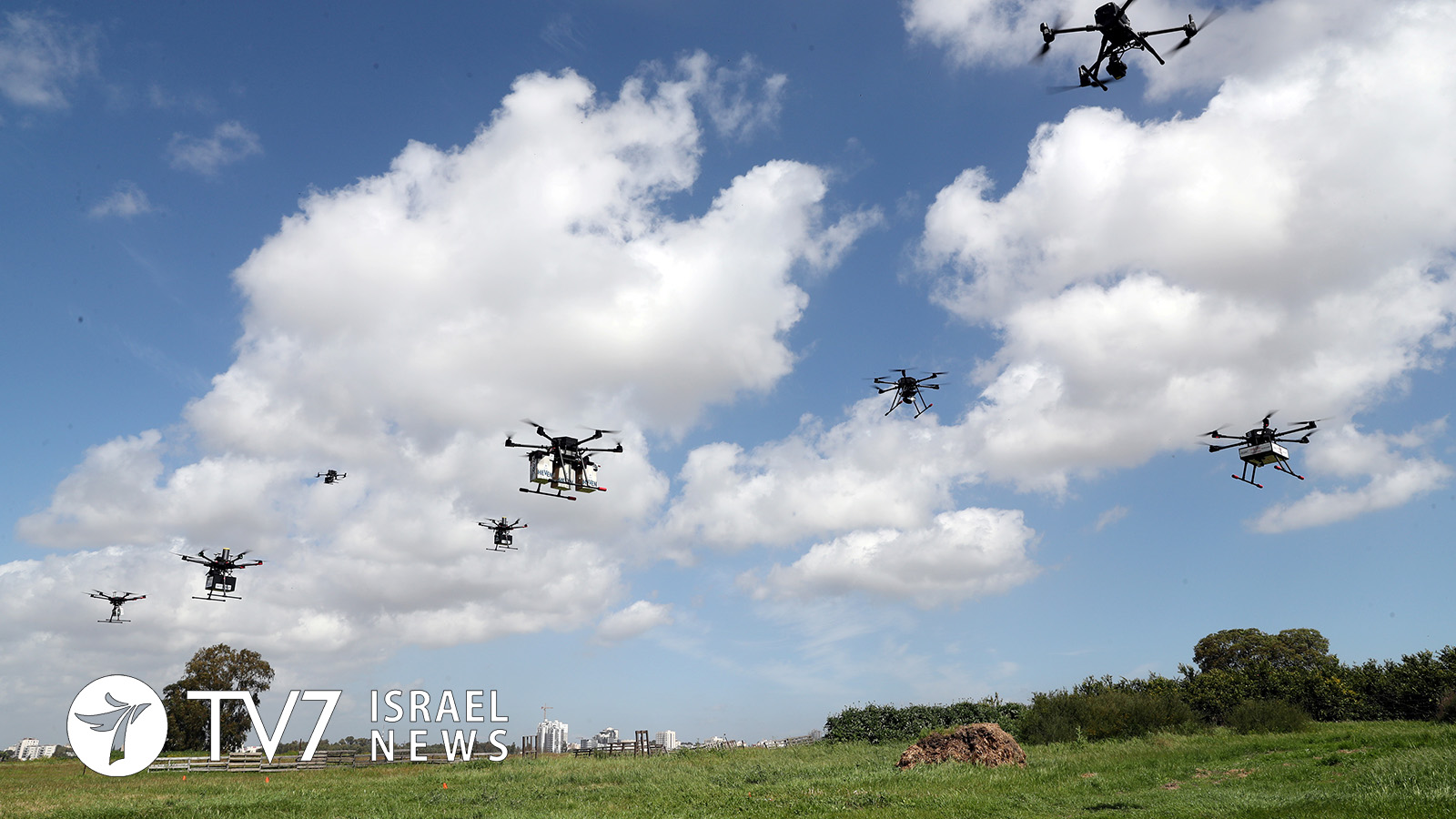Israel has created the world’s first national unmanned aerial vehicles (UAVs, or drones) network for urban commercial and medical transport.
While the IDF has long deployed use of drone aircraft for military and security purposes, this is the first-ever program launched for entirely civilian purposes.
The first live trial of a 2-year test phase was carried out this week by The Israel Innovation Authority (IIA), the Israel Ministry of Transport, The Civil Aviation Authority of Israel (CAAI) and The Smart Mobility Initiative.
“This is a significant global breakthrough in the ability to manage drone operations at scale, which will lay the foundation for future national drone operations in many areas,” the ministries said in a joint statement.
Five private firms were selected to conduct criss-cross drone runs in the skies over Hadera this week, on routes designed to test the responses of a control room operated by the Unmanned Aircraft System Traffic Management (UTM) located in the traffic and air traffic control centers of the Ayalon Highway Company in the central Haifa Bay, 56 km (35 miles) away.
The low-flying drones are popular due to their low-cost of operations, but there has been concern that greater congestion in the skies could lead to mid-air collisions with other aircraft or crashes that could cause casualties on the ground.
To eliminate these dangers, Israeli controllers sent electronic alerts and rerouting instructions to the drone operators to keep them, deployed in groups of 20, at least 60 meters (65.6 yards) apart and no higher than 120 meters (about 131 yards) from the ground.
“For the first time, we are managing airspace as a single entity, synthesizing drone operators with established civil and military aviation,” said the IIA’s Hagit Lidor, adding, “This is an opportunity for the regulators to learn what is needed to establish delivery drones as a daily reality, and for the drone operators to learn what is expected of them in turn.”
The project is part of the NAAMA Initiative (a Hebrew acronym for Urban Aerial Transport), that was launched in March 2020 to advance the use of drone delivery for public use via smart and innovative airspace management. Its ultimate aim is to turn Israel into a “beta-site” of Urban Air Mobility (UAM) drone piloting and operations to reduce traffic on the ground by the swift airborne transport of prescription drugs, medical equipment or even more mundane errands such as food delivery like pizza.
Hundreds of UAVs are scheduled to participate in the 2-week exercise, in the first of 8 phases slated to be held by 2023. Each UAV will carry out around 300 sorties a day while simulating the execution of various types of missions and tasks. All are equipped with parachutes to ensure safe landings should they experience any malfunctions.
So far the UAVs have only had to compete for airspace with local crop-dusters or paragliders, although helicopters and planes are likely to be introduced during the testing phase scheduled for June.
